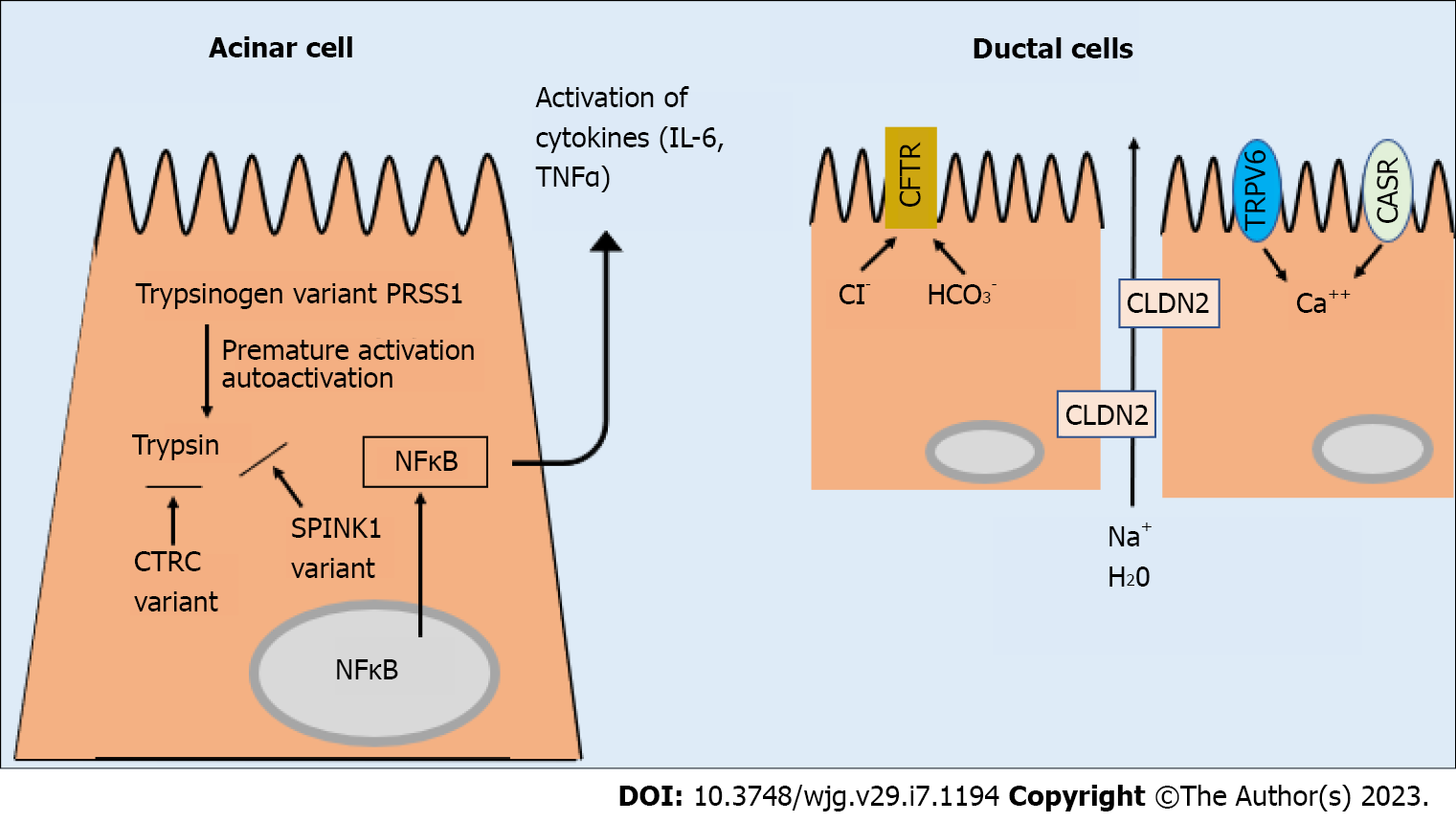Copyright
©The Author(s) 2023.
World J Gastroenterol. Feb 21, 2023; 29(7): 1194-1201
Published online Feb 21, 2023. doi: 10.3748/wjg.v29.i7.1194
Published online Feb 21, 2023. doi: 10.3748/wjg.v29.i7.1194
Figure 1 Diagrammatic depiction of fundamental events contributing to the complex molecular pathways resulting in pancreatitis.
Although a unifying concept is not available for all events, recent literature has provided a clearer description of the complexity of pathologic events which is briefly summarized. A proposed first step is injury to cytoplasmic organelles from external stressors, including prolonged, high intake of ethanol and smoking. These injuries result in endoplasmic reticulum stress, mitochondrial depolarization, inadequate ATP production, vacuole accumulation, protein misfolding, and disordered autophagy leading to activation of trypsinogen and inflammatory pathways. Disruption of the normal pathways may be augmented by genetic mutations at key functional sites responsible for trypsinogen activation, trypsin inhibition, Ca++ concentrations, and HCO3- and H2O movement[4-9,20,21]. CTRC: Chymotrypsin C; CFTR: Cystic fibrosis transmembrane conductance receptor; NF-Κb: Noncanonical nuclear factor-kappaB; TNF-α: Tumour necrosis factor alpha; IL: Interleukin.
- Citation: Strum WB, Boland CR. Advances in acute and chronic pancreatitis. World J Gastroenterol 2023; 29(7): 1194-1201
- URL: https://www.wjgnet.com/1007-9327/full/v29/i7/1194.htm
- DOI: https://dx.doi.org/10.3748/wjg.v29.i7.1194









